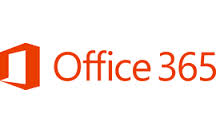When it comes to disasters, the question isn’t if, but when they will occur. They can range from minor power outages to catastrophic floods, but more often result from malicious tampering, computer failure, hardware theft, computer viruses, or hacking. Equally common is the disaster of simply deleting a file accidentally. Businesses must be proactive to ensure that when a disaster occurs, their data will be protected, so they can get back to work as quickly as possible.*
If you’re like most small businesses, you rely on your computer systems to keep day-to-day operations running smoothly. Any unexpected downtime—such as when systems are out of operation or become inaccessible—can result in serious consequences, including reputation damage, lost revenue, or legal liability. If your data isn’t protected when a serious glitch occurs, the digital assets that drive your business can be permanently lost.
However, according to a Symantec’s 2011 SMB Disaster Preparedness Survey, many small businesses are still not appropriately protecting their data in the event of a disaster. In fact, less than half back up their data weekly or more frequently, and only 23 percent back up daily.
Why? As an organization grows and uses more applications, managing backup can become very time-consuming, complex, and expensive. Many small businesses are simply overwhelmed. They don’t have the time and resources to deal with the ongoing maintenance and management of their applications, software, and hardware.
This is where automated backup to remote computers in the cloud comes in. Data is automatically stored offsite, safe in the event of a natural disaster. It is also suitable for an increasingly mobile workforce, as data can be restored from anywhere with an Internet connection. Whether for messaging security or data storage and protection, small businesses are increasingly turning to cloud-based solutions they can trust to ease the burden on their time and resources.
The Benefits of Online Backup
Like other SaaS (Software-as-a-Service) applications, online backup is an alternative to an on-premise software application. In this instance, both the backup application and storage of information resides offsite. This approach allows customers to replace upfront investments in backup hardware, software, and personnel with a predictable subscription-based service fee.
Following are eight reasons to consider online backup for your business:
1. Secures and protects your company’s data. After its employees, a company’s information is among its most important assets. Online data recovery solutions back up data electronically over the Internet to the vendor’s data center. Industry best practice is for data to be encrypted while it is transmitted to the vendor and again at the vendor’s data center. Storage in enterprise-class facilities provides additional security.
2. Ensures consistent, automated backups. Online backup solutions can be completely automated, and the vendor assumes much of the responsibility for the success of the backups and restores. Some vendors offer 24×7 support and provide a Web-based portal to view completed backups and backup version histories, initiate restores, and run reports.
3. Simplifies off-site protection. Online backup eliminates the need to physically transport tapes or removable external drives. Offsite protection without a vaulting service can be more affordable and doesn’t require interaction with physical media that may be prone to failure.
4. Protects remote and branch offices. Many remote and branch offices have limited or no backup in place, or no way to monitor backups to make sure they are occurring. By using an online backup service, remote offices are protected by regular and automated backups even if they lack local technical staff. Larger organizations wishing to protect remote workers or smaller satellite offices can back up to the cloud while still using traditional software at the main office.
5. Is fast and easy. You can set up regular automated backups quickly with no need for dedicated or onsite IT staff. With vendors that support block level or incremental backup, after the initial backup, the service runs in the background, backing up only items that have changed.
6. Helps to keep data available. Online backup preserves data for small businesses with aging computers or data stored on hard drives that are not backed up regularly. Data center redundancy plans help keep information and applications available.
7. Reduces costs and allows access to advanced systems. With a subscription-based model, the cost of building and maintaining the infrastructure to support the backup application is spread across numerous customers, allowing the service provider to offer a sophisticated service at a lower cost than would otherwise be possible.
8. Increases business focus. A common complaint from IT managers is that they have too little time to think about the growth of their business, or how they can further leverage technology to boost profits, revenue, and productivity. When companies no longer have to worry about data recovery, they’re free to focus on the core business. With fewer servers to manage and fewer client computers failing, there’s time to build competitive strategies that allow the company to grow.
Considerations
When researching backup services vendors, seek out vendors that provide detailed information on their policies and programs. In addition, ask about:
Security & Privacy
• Data Security. When selecting a vendor to store your data in the cloud, it is important to research the levels of encryption and security used to protect it. Strong vendors will protect your data in transit with military-grade encryption levels like 128-bit SSL connections and store it on reliable enterprise-grade redundant disk arrays (RAIDs).
• Data center access. How secure are the facilities that your data will be stored in? It is important that the data centers used by the vendor are constantly monitored with carefully controlled personnel access.
Compliance
Think about legislation or regulations the business must comply with. Are there regulatory requirements for where the data can be stored? Is the business required to retain data for a certain period of time? What data privacy safeguards are required? Ask the vendor how they can help you address these requirements.
Performance & Reliability
What happens if the backup provider becomes temporarily or permanently unavailable? What rights do you have to your data? How quickly will you receive your backup? Make sure you understand your backup service provider’s service level agreements and the measures they use to protect your data and ensure the availability of the service.
Conclusion
Cloud-based backup offers important benefits for small businesses. With the promise of significant cost savings, flexible options designed for agility, and a workforce that is free to focus on its company’s core offering, it’s no surprise that small businesses are leading the charge to move their backup operations to the cloud.
*Source: 2011 Symantec Corporation.
If you would like to know more, please contact us at 1-800-871-9683 for a free consultation. Also, if you still have Windows 7 or 8 Computer(s) in your business, please give us a call to help you upgrade to Windows 10 and Office 365. Our email address is: markhuffman@creativebusinesstechnologies.com





